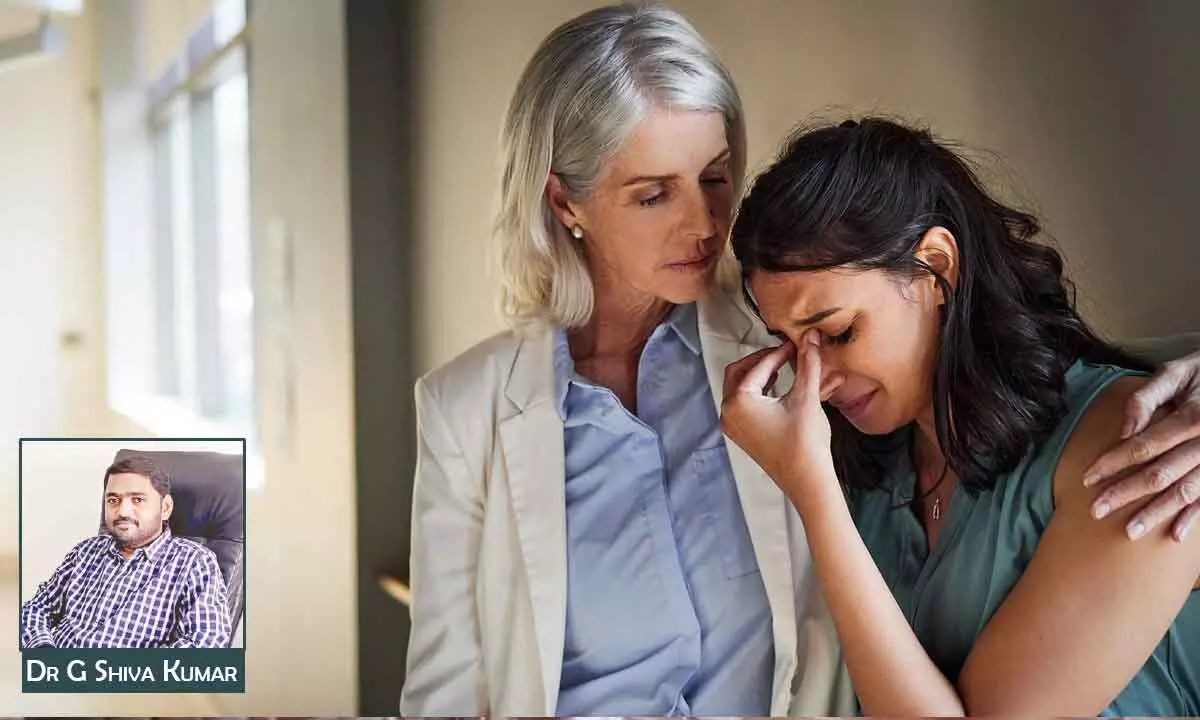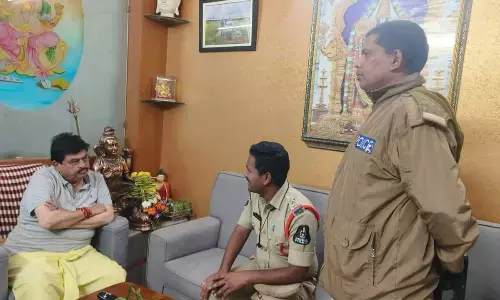How to help people with suicidal risk?

Dr G Shiva Kumar, Consultant Clinical Psychologist, explains how to stop them from ending life
For most people who attempt suicide, suicide appears to be the only full-stop to their problems and suffering. But on the other side, they fail to acknowledge that they are putting their family through a lot of emotional trauma and suffering. When there is a family dependent, it becomes very difficult for them to manage life after the death of the family’s bread-winner. It is a fact family history of suicide would act as a very strong risk factor for other family members to think about suicide or taking steps towards ending their life when they go through tough and stressful situations.
Whenever you notice your loved ones talking about death, killing themselves or suicide, expressing no reason to live, feeling hopeless and empty, feeling a burden to others, being withdrawn from family and friends and engaging in high-risk behaviours, you need to be cautious that these are the warning signs that the person may be at risk of suicide. You need to take few steps immediately to stop the person from suicide.
1. ASK & LISTEN CAREFULLY
When you know the person is at risk, you may ask the person that “Are you thinking of suicide?” After whatever the person talks to you, listen empathetically, non-judgmentally and supportively. It gives the confidence to the person that you are sensitive to their emotional pain and suffering, and the person can open up his thoughts to you about the reason for their pain and suffering. Please avoid talking about your suffering, but help them to focus on their reasons for living.
2. BE PHYSICALLY PRESENT
It means a lot for the person when you are physically there with the person. Most people commit suicide when they are alone. Being physically present there gives the feeling of being connected to others, reduces their isolation and the risk of suicide, and it is life-saving.
3. KEEP THEM SAFE
When you know that the person has severe and highly lethal ideas for suicide, try to keep them safe by removing all the objects which can be used for ending life. Remove and keep away the objects from the person's reach which can be used for suicide - like kitchen knives, long ropes, toilet cleaners, pesticides, medicines and tablets. Also, search that the person has kept any object secretly for suicide. Be gentle and calm when you do it in the presence of the person.
4. GET THEM HELP
Clinical Psychologists & Psychiatrists, licensed mental health professionals, are trained and experts in counselling and psychotherapy for emotional disturbances and can provide professional help to people with suicidal risk. Several governmental and non-governmental organizations in India and worldwide provide confidential and emotional support at no cost to people with suicidal risk.
Getting them professional help will establish a safety net for the person to reduce suicide risk by connecting them with support and resources in the community.
At our Roshni Trust in Hyderabad, we provide free counselling to people with emotional disturbances and suicide risk by conducting free helpline (814 20 20033 / 814 202 20044 / 040-66202000 / 66202001) through the trained voluntaries and experts for the past 25 years.
5. Do Follow-up
After you get help from the person to get help and support through a professional or organisation:
1. Please stay connected and frequently follow up with them to know what they are doing.
2. Meet them, give them a call, or send a message.
3. Do a few things you can do, even in a small way that can have a strong positive impact on the person and increase the feeling of connectedness.
(Email your concerns: [email protected], Phone Number: 9866256020)











